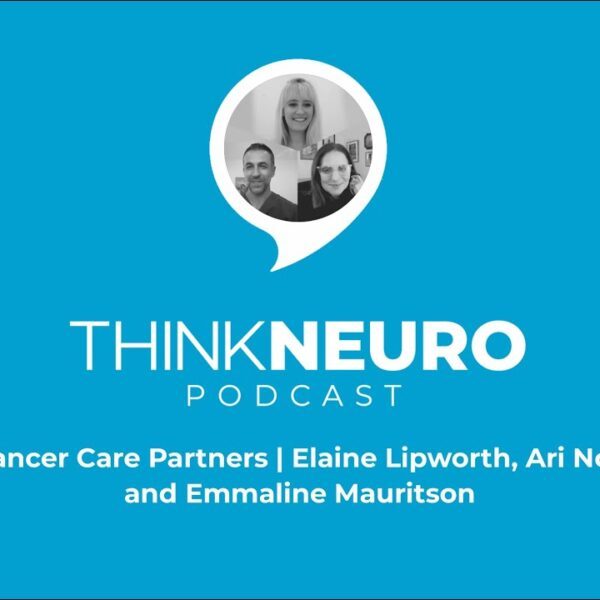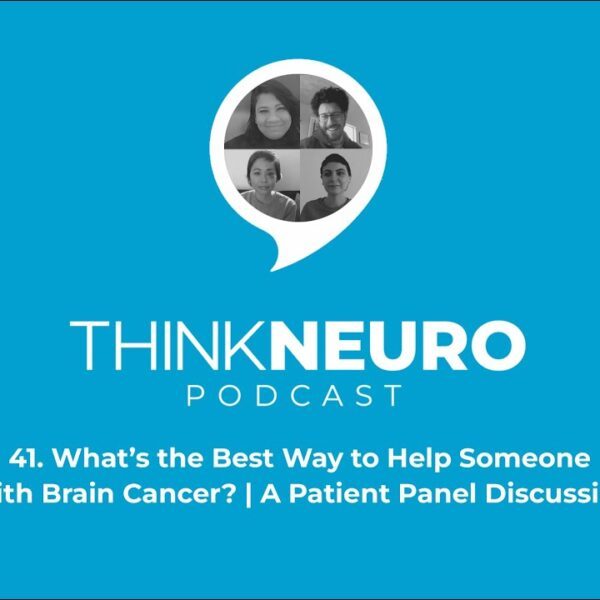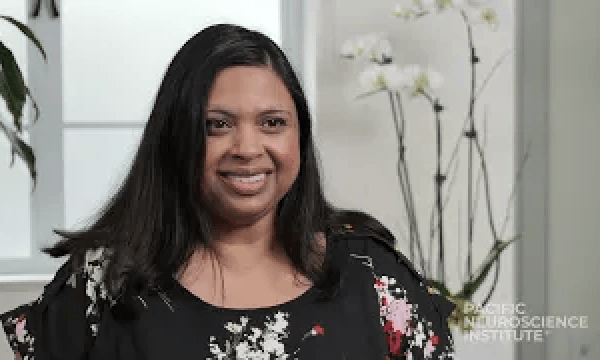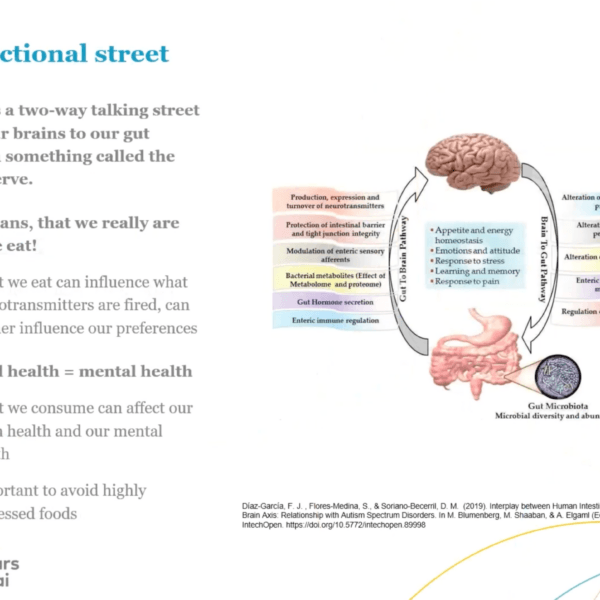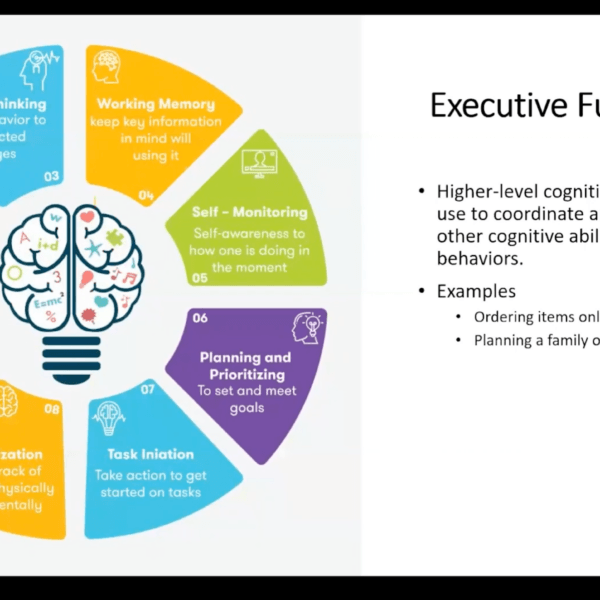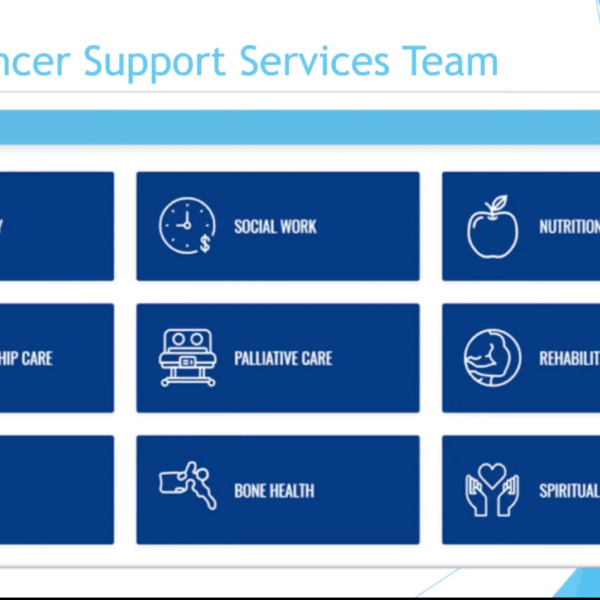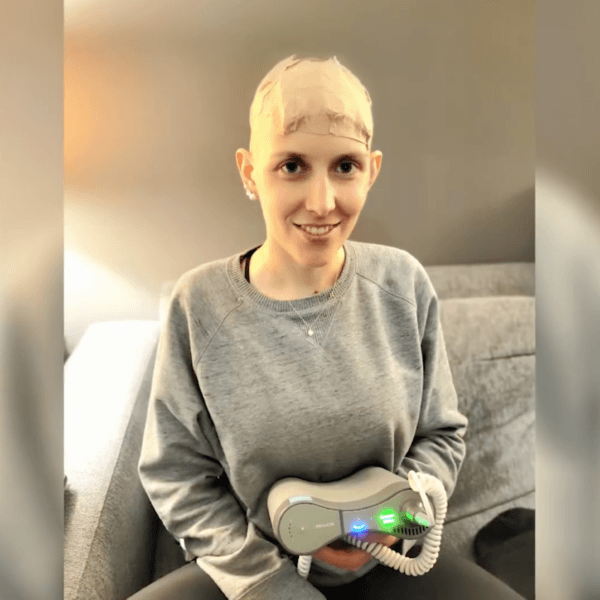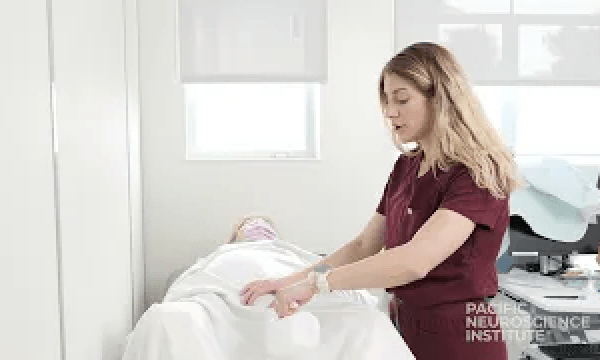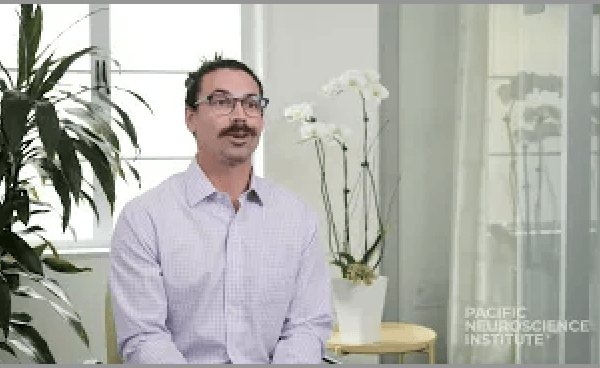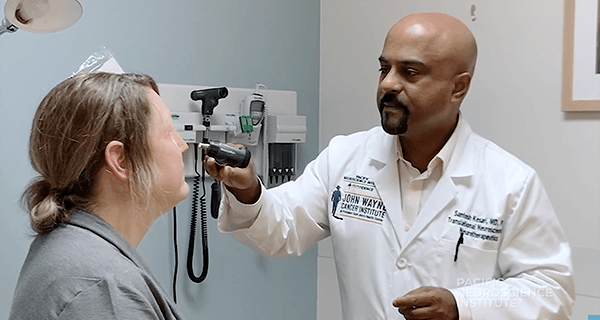Brain Tumor
Video
Think Neuro Podcast: Brain Cancer Care Partners
When it comes to cancer, the focus is most often on the patient. But the best treatment happens when their care partners are cared for, too. The first step is knowing what it’s like to be the partner, son, daughter or friend of a cancer sufferer. Elaine Lipworth is a writer who lost her husband Stephen to a brain stem tumor. Ari Nowain, MD, is a gastroenterologist whose father is living with a glioblastoma. Emmaline Mauritson is a physician’s assistant at the Pacific Brain Tumor Center who works with patients and their families in the neuro-oncology clinic and infusion center on their cancer journey. We talked about what’s hard, what’s surprising, and what’s rewarding about being a cancer care partner. Listen to this podcast to learn about one of the toughest roles we’re called upon to play in this life, and what we might learn from it.
https://www.pacificneuroscienceinstitute.org/brain-tumor/
https://www.pacificneuroscienceinstitute.org/brain-tumor/our-center/supportive-care-clinic/
Neuro-oncology: 310-829-8265
Neurosurgery: Santa Monica 310-582-7450 | Torrance 424-212-5361 | Burbank 818-847-6049
Video
Think Neuro Podcast: What’s the Best Way to Help Someone With Brain Cancer? | A Patient Panel Discussion
Tatiana lives with a brain tumor that causes pain like the very worst migraine. Van Nessa had a sarcoma in her cheekbone and has had eight surgeries. Ben has an inoperable brainstem glioma that is kept in check with a new drug. Do you have someone in your life who is living with cancer? Tatiana, Van Nessa and Ben have some thoughts on how to help them. For Ben, the best thing was when a friend just left dinner on the porch and didn’t even ring the doorbell. Tatiana likes it when friends check in, if not with her, with her mother, who is “in it with her everyday.” Dr. Akanksha Sharma, a neuro-oncologist at Pacific Neuroscience Institute has helped hundreds of patients who live with brain cancer. She joins me in moderating this discussion on what helps and what doesn’t when someone is facing the toughest diagnoses.
Video
Care Partner Series: What is Meditation? | Sujata Dube, MA
This is part of a series of “How To” videos for our families, specifically focused on care partners. The information presented in "What is Meditation?" however is universal and can benefit anyone.
Video
Brain Tumor Webinar: Optimizing Wellness for Brain Tumors
Guest speaker L.J. Amaral MS, RD, CSO, Clinical Nutrition Coordinator at Cedars Sinai, discusses how to optimize wellness for brain tumors using nutrition and exercise.
May is Brain Tumor Awareness Month. We “Go Gray in May” and celebrate our patients, their loved ones, and their important journeys. Our brain tumor patients and their loved ones often report that they feel unseen, overshadowed, and isolated. A “rare” or “uncommon” diagnosis of a brain tumor can be challenging in the extreme, but may not be externally visible in its signs or even in its treatment side effects.
During Go Gray In May, we host a series of educational, informative, and fun events for our community to interact, socialize, express themselves, ask questions, learn about specific topics, and share their own experiences.
For more information on brain tumors and tools for coping and resilience, contact the Pacific Neuroscience Institute today.
PacificNeuro.org | PacificBrainTumor.org
310-829-8265
Video
Brain Tumor Webinar: Cognitive Changes in Patients With Brain Tumors
Romina Huerta, MS, CCC-SLP, Speech-Language Pathologist at
Pacific Neuroscience Institute, discusses cognitive changes in patients with brain tumors.
May is Brain Tumor Awareness Month. We “Go Gray in May” and celebrate our patients, their loved ones, and their important journeys. Our brain tumor patients and their loved ones often report that they feel unseen, overshadowed, and isolated. A “rare” or “uncommon” diagnosis of a brain tumor can be challenging in the extreme, but may not be externally visible in its signs or even in its treatment side effects.
During Go Gray In May, we host a series of educational, informative, and fun events for our community to interact, socialize, express themselves, ask questions, learn about specific topics, and share their own experiences.
For more information on brain tumors and tools for coping and resilience, contact the Pacific Neuroscience Institute today.
PacificNeuro.org | PacificBrainTumor.org
310-829-8265
Video
Brain Tumor Webinar: Frequently Used Resources in Cancer
Joseph Greenberg, MSW, LCSW, OSW-c, and Caroline Sarafin, licensed clinical social workers at Providence Saint John's Health Center, explain frequently used resources in cancer.
May is Brain Tumor Awareness Month. We “Go Gray in May” and celebrate our patients, their loved ones, and their important journeys. Our brain tumor patients and their loved ones often report that they feel unseen, overshadowed, and isolated. A “rare” or “uncommon” diagnosis of a brain tumor can be challenging in the extreme, but may not be externally visible in its signs or even in its treatment side effects.
During Go Gray In May, we host a series of educational, informative, and fun events for our community to interact, socialize, express themselves, ask questions, learn about specific topics, and share their own experiences.
For more information on brain tumors and tools for coping and resilience, contact the Pacific Neuroscience Institute today.
PacificNeuro.org | PacificBrainTumor.org
310-829-8265
Cancer Support Service Line: 310-829-8648
Video
Brain Tumor Webinar: Living with Optune (Tumor Treating Fields) for Glioblastoma
Guest Speaker Janice discusses what is it like to live with Optune (Tumor Treating Fields) for glioblastoma. The webinar was hosted by Akanksha Sharma, MD, Neuro-oncologist at the Pacific Brain Tumor Center at Pacific Neuroscience Institute.
May is Brain Tumor Awareness Month. We “Go Gray in May” and celebrate our patients, their loved ones, and their important journeys. Our brain tumor patients and their loved ones often report that they feel unseen, overshadowed, and isolated. A “rare” or “uncommon” diagnosis of a brain tumor can be challenging in the extreme, but may not be externally visible in its signs or even in its treatment side effects.
During Go Gray In May, we host a series of educational, informative, and fun events for our community to interact, socialize, express themselves, ask questions, learn about specific topics, and share their own experiences.
For more information on brain tumors and tools for coping and resilience, contact the Pacific Neuroscience Institute today.
PacificNeuro.org | PacificBrainTumor.org
310-829-8265
Video
Care Partner Series: Incontinence Management | Mariah Mahotz, BSN, RN, OCN
This is part of a series of “How To” videos for our families, specifically focused on care partners. Incontinence Management is one of the most requested pieces of information for care partners looking after loved ones who have limited mobility.
This instructional video covers the following
• Proper mechanics to log roll
• Removing and replacing soiled linens and brief underneath a patient.
• Use of a bed pan or urinal when family member is able to relay when they need to use the restroom
• Methods of incontinence management
• Briefs
• Pure-wick
• Condom catheter
• Safe handling if a family member is taking chemotherapy
Video
Care Partner Series: Preventing Falls | Corwin Patis, PT, DPT
This is part of a series of “How To” videos for our families, specifically focused on care partners. Preventing falls becomes a significant issue with our patients as they go through the stages of their disease, because of ataxia, weakness, vertigo, proprioceptive issues, etc. Learn about the key ways to help your loved one safe from falls.
Video
Clival Chordoma Clinical Trial: Kimberly’s Story
Lean about how a patient with a recurring clival chordoma brain tumor found Dr. Santosh Kesari at Pacific Neuroscience Institute, and the clinical trial protocol where she received treatment with a novel personalized and targeted approach using pemetrexed (Alimpta).
More information:
310-829-8265 | Neuro.Trials@pacificneuro.org
